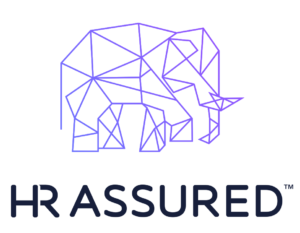Workplace Investigations: Procedural Fairness and the Privilege of Legal Professional Privilege
December 14, 2017The key to defensible discipline and dismissal processes often revolves around competent workplace investigations into alleged wrongdoing. MEGAN BOWE, Partner of FCB Workplace Law, explains the importance of understanding the basics of sound workplace investigations.
Why investigate?
If you are made aware of possible misconduct by an employee that may justify disciplinary action, it is vital that a thorough workplace investigation is carried out to determine whether the alleged conduct actually occurred and whether there are any aggravating or mitigating circumstances which will affect the outcome of the disciplinary process.
Attempting to discipline an employee without first having investigated the matter is akin to sentencing someone without a trial. You may not have all the facts, the punishment may not fit the crime and it’s likely that the employee won’t get the chance to put forward their side of the story. This will likely lead to an inaccurate, unfair result and could potentially expose employers to a myriad of unnecessary workplace risks, not least of which is a claim of unfair dismissal.
Not every incident requires an investigation of course, but it is absolutely crucial that certain matters are subject to further investigation, such as a breach of policy, complaints about bullying, sexual harassment or discrimination, allegations of theft, fraud, fighting, use or possession of illicit drugs, breaches of safety, or if an employee claims that he or she has been subject to adverse action stemming from a ‘workplace right’ under the Fair Work Act.
What if the employee does not want an investigation into their complaint?
In reality, it is all too common for an employee to raise a workplace issue with their employer “informally” not wishing for any formal action to be taken. In some instances, it may be that the employee is simply looking for a sounding board or an opportunity to vent. But how do you tell the difference between an airing of grievances and serious allegations of misconduct?
All employers have a duty to protect their employees against inappropriate (and at times unlawful) behaviour and conduct in the workplace. This generally means that, irrespective of an employee’s views on how their workplace issue should be managed, once the employer becomes aware of an issue, it is imperative that the employer considers the potential risks arising from the complaint, and makes an assessment about the extent to which the issue should be investigated and the process for doing so.
When to investigate?
The efficiency of an investigation hinges on timing. Delays may result in loss of evidence as witnesses’ memories become foggy, documents are lost or footage is taped over. You should conduct an investigation as soon as practicable, otherwise you risk conveying the message that you do not regard the alleged conduct as serious enough to warrant attention or worse, that you condone such behaviour.
Sometimes, allegations are not brought to your attention until a long time after the incident occurred. The requirement to investigate as soon as possible is not diminished in these circumstances, even if you suspect that little evidence remains.
In Ms RT v The School [2015] FWC 2927, decision involved a finding that a primary school teacher had been unfairly dismissed after taping three 5 year old students to their classroom chairs, using masking tape like a “seatbelt” to secure the children to this chairs until they finished their work.
Once the school became aware of the allegations against the teacher (Ms RT), the school permitted Ms RT to continue teaching the class for a further two weeks before it suspended Ms RT and commenced a formal investigation into her conduct. When she was subsequently dismissed, Ms RT commenced unfair dismissal proceedings on the grounds of harshness due to the delay between the incidents occurring and the school taking action.
While the Fair Work Commission found that Ms RT’s conduct was deliberate and a clear breach of both school policy and child protection guidelines, and summary dismissal was an appropriate response, given the school allowed a two-week delay in commencing its investigation, the Commission found the school’s “decision to permit her to continue to teach after the allegations against her were made was inconsistent with that summary dismissal” and therefore, the summary dismissal was harsh.
The Commission said, “in simple terms, if her behaviour was that significant, the school acted inappropriately by allowing her to continue to teach before it even commenced its investigation.”
As the dismissal was found to be harsh, that meant it was also unfair. The school was ordered to pay Ms RT 6 weeks’ wages on the basis that it was likely she would have been dismissed with 6 weeks’ notice if not summarily dismissed. Importantly, the Commission noted that if Ms RT had been dismissed with notice, the outcome would have been different.
Who Should Conduct the Investigation?
A worrying trend for employers is the increasing rate at which managers or groups of managers are being named as individual respondents to bullying and harassment claims involving employees who are being performance managed or who are the subject of investigations alleging misconduct. Conducting thorough investigations is a skill, and the approach undertaken will be highly dependent upon the allegations under review and the nature/role of the participants involved in the investigation process. However, as the case study above indicates, a poorly managed investigation can be the difference between a successful or unsuccessful defence of unfair dismissal proceedings.
One of the most important initial steps in undertaking an investigation is to identify an appropriate investigator. In carrying out this task the key questions to ask are:
- if established, do the allegations relate to misconduct or serious misconduct?
- what is the potential risk to the business (eg litigation, bad publicity, decreased employee morale)?
- is there any risk that the complainant, the respondent or other employees could perceive an element of bias affecting the proposed investigator (eg is the respondent a member of the senior executive)?
- do you have the internal skills and capability to conduct the type of investigation that’s being proposed?
- assuming those internal persons do have the necessary skillset to conduct the investigation, do they have the capacity to complete a timely investigation?
Answering these questions will allow the business to determine whether the investigation can be carried out internally or whether it may be more appropriate to engage an external investigator.
When should you engage an expert?
It is not always appropriate or effective for an investigation to be conducted internally. Circumstances where an employer should consider engaging an external investigator include:
- where a complaint is made against a senior employee, a member of the executive or a member of the Board (if applicable);
- where the conduct forming the substance of the allegations is serious and the risk implications are high, for example allegations involving sexual harassment for which the employer could be found vicariously liable;
- where there is a risk that an internal investigator will be conflicted, whether due to the identity of the complainant or the respondent or because of their personal involvement in the matters on which the allegations are based;
- where the employer does not have adequate resources to properly conduct the investigation internally. This may be due to time constraints or an absence of appropriately trained personnel; and/or
- when it may be beneficial to attach legal professional privilege to the investigation process and findings.
If you engage a Solicitor as an investigator with the intent of creating legal professional privilege over the investigation documents, it is important to consider which documents will be privileged (eg will witness statements be protected or only the report on the investigation findings) and how you will separate the role of investigator (who is responsible for making findings of fact) from the role of legal advisor (who is responsible for providing advice based on the findings of fact).
Getting it Wrong
The risks of getting an investigation wrong are numerous. A case from a couple of years ago provides the perfect example: An employer, who failed to provide the employee being investigated with the particulars of the complaints made against him, failed to follow their own grievance procedure, failed to take the employee’s response into account when making its decision and relied heavily upon uncorroborated assumptions and the results of past unrelated investigations. As a result, the employer paid a heavy price and was not only ordered to pay the employee 6 months’ wages but also an additional $1.4 million in outstanding bonus payments plus interest (Sharma v Bibby Financial Services Australia Pty Ltd [2012] NSWSC 1157).
For employers, the key tips for conducting investigations include:
▶ Documentation is crucial;
▶ record the lawful, objective reasons for any actions taken;
▶ act without delay;
▶ ensure you have an uncompromised decision maker;
▶ update your contracts to exclude reciprocal application of policies and include express provisions around misconduct;
▶ design and implement clear policies and procedures, particularly in relation to bullying, harassment, equal opportunity and the handling of workplace grievances; and
▶ if you don’t know, or you are uncertain about, the correct processes to follow in initiating workplace investigations, seek professional advice sooner rather than later.
If you have any inquiries regarding workplace investigations, please contact Megan Bowe, Partner, on (02) 9922 5188


























